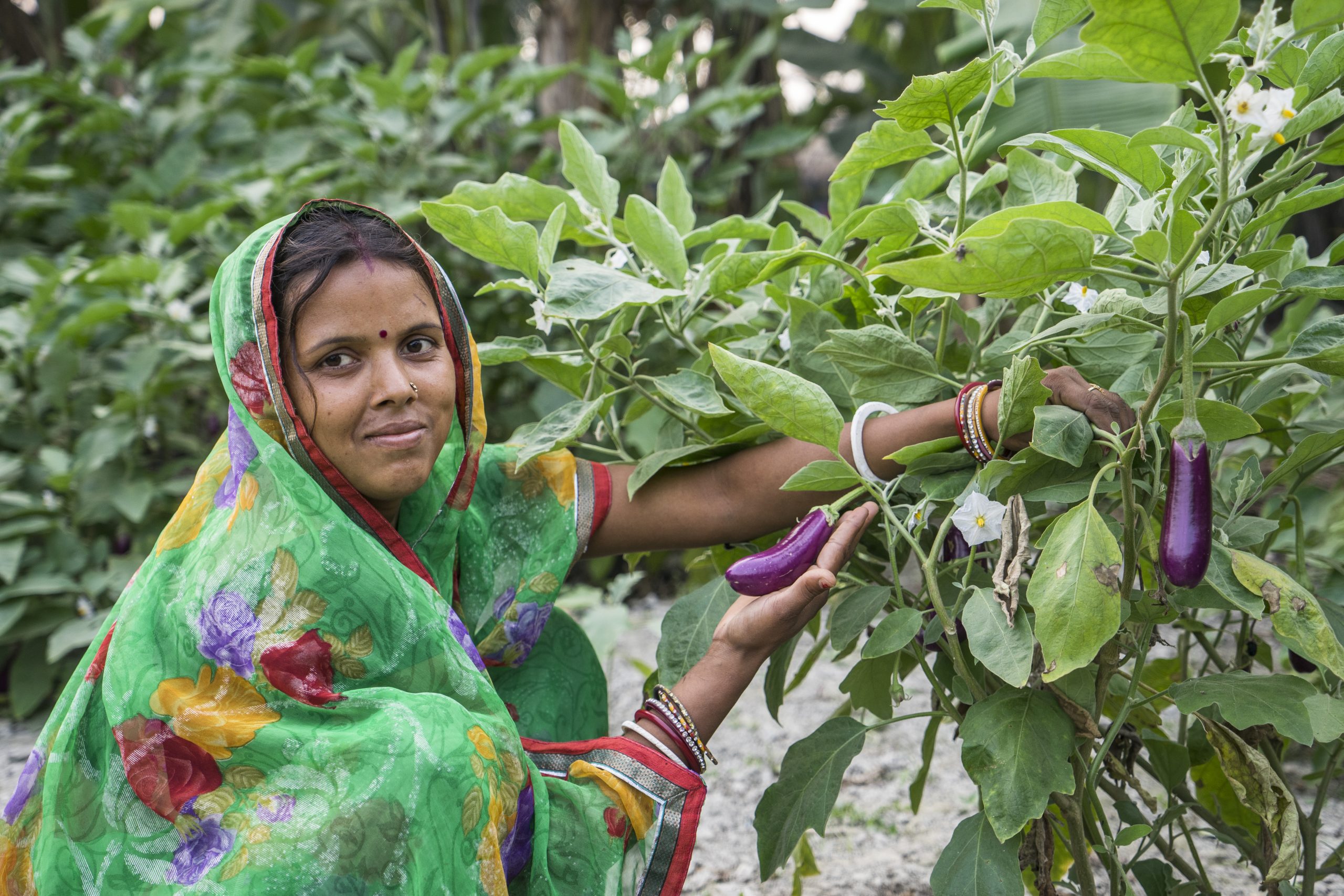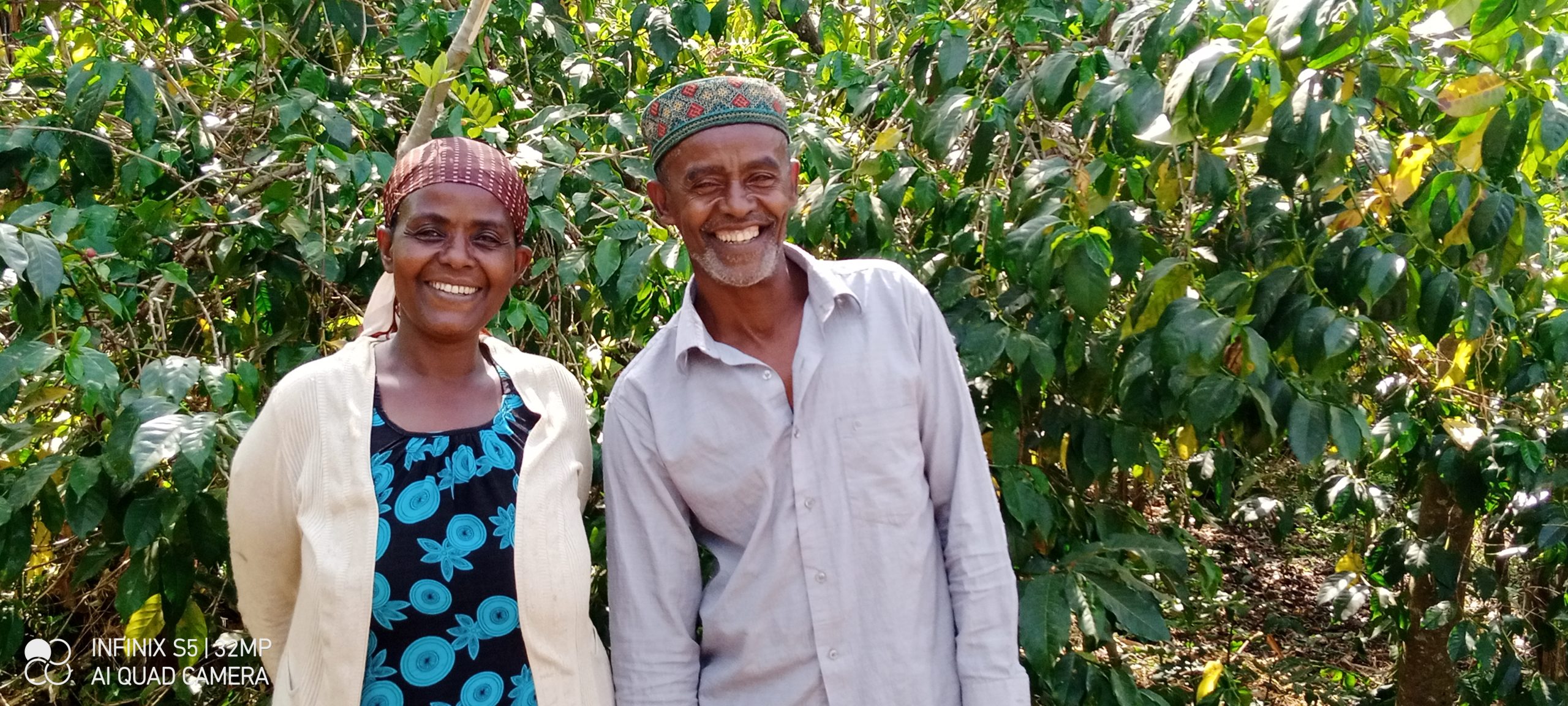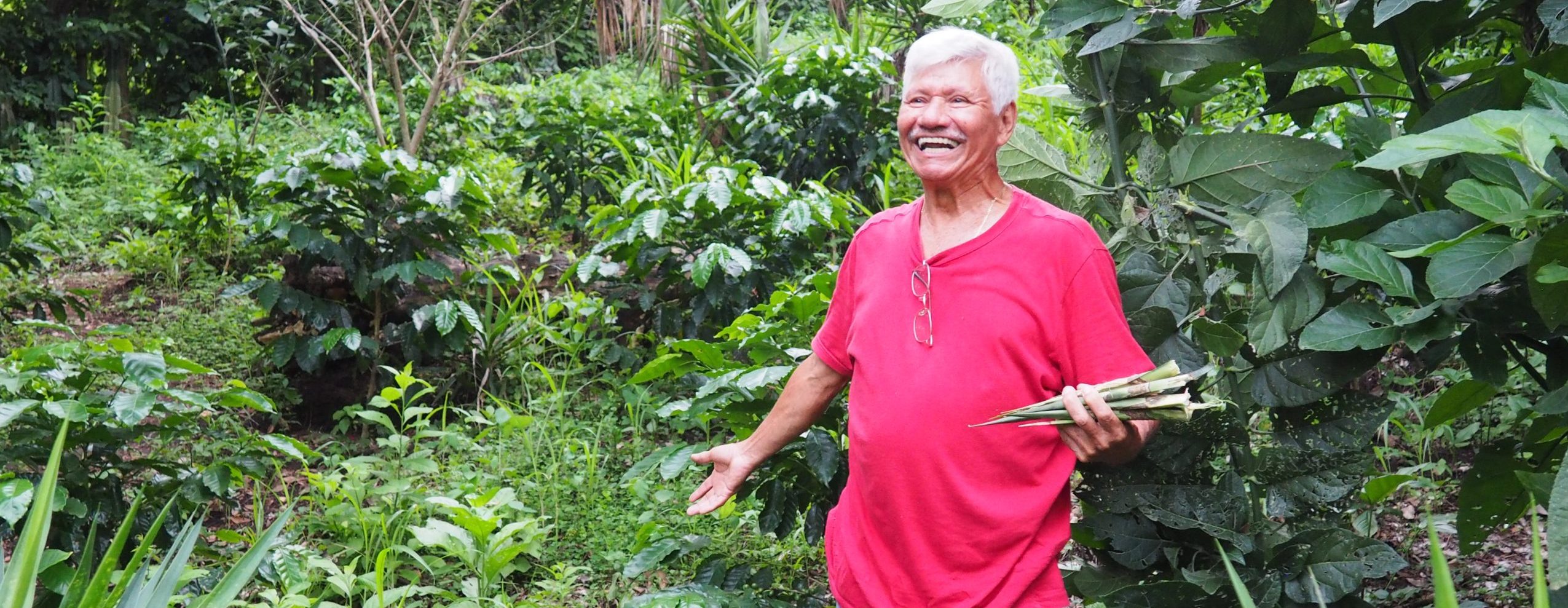From the Ground Up, a Call to Action for COP28
TechnoServe's urgent call to the global community gathering at COP28: it's time to take concrete action to transform agriculture and food systems.
You can download a PDF version of the document here
Opportunity in Our Agri-Food Systems
As the world gathers at the UN Climate Change Conference (COP28), there is broad consensus that agri-food systems must be an important part of future climate solutions. However, another crop of proclamations and frameworks won’t be enough: it’s time for bold ambition, strong coalitions, and collective action that drives on-the-ground change. TechnoServe recognizes that our mission to end poverty for billions of smallholder farmers and entrepreneurs is inextricably woven with the world’s ability to deliver climate solutions that benefit people and the planet, and that these imperatives complement one another. This is the time. Together, we can spark a regenerative food revolution.
Regenerative agri-food production is a critical solution to ensure global equity and a healthy planet. A climate-positive future is still within reach, but to achieve it, we must transform the way the world grows food. At present, agricultural production is responsible for one-third of all greenhouse gas emissions. Regenerative agri-food production offers an immense opportunity to build livelihood resilience, mitigate climate change, and restore nature.
Smallholder farmers and small agribusinesses must be vital change agents to deliver a regenerative agri-food system. Their knowledge, needs, and concerns must directly shape the process, based on the principles of agroecology and a just transition. This transition must also strengthen the capacity of farmers to adapt to climate change and build their resilience.
This change is already a reality: there are many examples around the world of smallholder farmers who have incorporated regenerative farming. Their work is not only healing the soil, sequestering carbon, and saving freshwater but also lifting their families and communities out of poverty. This often builds on traditional ecological knowledge that has long been practiced by local communities and is finally receiving global recognition.

This is the moment to build on success and create rapid change at scale. COP28 can lay the tracks for the international community to break through systemic bottlenecks that hinder investment and progress.
Collective Action from the Ground Up
TechnoServe believes action comes from the ground up. And our clients—millions of smallholder farmers and small business entrepreneurs—need concerted global support to replicate regenerative agriculture at scale and rapidly enact change at the grassroots. But our field-level development community cannot achieve the necessary scale or speed of change unless we are serious about solving our shared problems.
Among the solutions are three system needs:
Credibility – The world needs real outcomes that demonstrate the potential for regenerative agriculture to benefit the climate in a way that also benefits farmer incomes. That requires rigorously measuring the impact of regenerative farming on our climate, nature and livelihoods. We need to target our interventions, using common indicators, methods, and tools shared across organizations and initiatives. We need to share our data and science-based evidence with other stakeholders and learn from each other’s experiences.
Capacity – Smallholder farmers must receive agronomy training that builds technical skills and complements indigenous and traditional knowledge so they value and adopt regenerative practices at scale. Technical advisors and farmers need up-to-date information about regenerative farming techniques and practices. We need to provide farmers with quality business knowledge and inputs that enable them to implement change and link them with markets that reward them for their environmental services and products.
Context – We need repeatable, ready-made models tailored to local needs, grounded in the truth that farmers will only adopt environmentally sustainable practices if they are also financially sustainable. We need to replicate successful cases of regenerative farming across different landscapes, crops, and value chains. We need to rapidly adapt these models to the local context, taking a human-centered approach that addresses the factors that influence farmers’ decisions and behaviors.
“While we heard of some of the techniques in the past, we did not get any practical explanation on how to apply them. With the Regrow Yirga Coffee Farm College, we learned about the right weeding techniques, how to make and apply compost, intercropping, and stumping [rejuvenating coffee trees], and decided to apply these on this part of our farm.”
– Herut Habine and Hailu Melese, participants in a TechnoServe program in Dilla Zuria, Ethiopia

Our unique challenges require us to collaborate in new ways. Our mission to end poverty is interconnected with responding to the climate crisis. This time and this moment requires action and collaboration beyond business as usual.
The Path Forward
The urgency of this moment calls for action, and the complex challenges in agri-food systems require us to collaborate in new ways.
COP28 gives the world a unique opportunity to spark change that ensures agri-food systems will be part of a climate-positive future. To capitalize on the opportunity, organizations interested in sparking this change must come together to take three actions.
Build a ground-up coalition – We are assembling leading ground-level organizations that are committed to making regenerative smallholder farming a reality. This coalition must include buy-in at the grassroots, as well as development partners that serve farmers.
Make collective resourcing asks – System transformations need more than just words and endorsements. Organizations must identify our joint resourcing needs by articulating a clear, joint problem statement, supported by innovative solutions that will maximize the impact of our efforts.
Set a clear pathway to success – The global community must define what success looks like, with a clear set of pathways and milestones for agricultural transformation. This must start immediately, gain momentum in the coming months, secure funding by COP29, and achieve scale by COP30 in Brazil during 2025.
These steps are all designed to help spark agri-food transformations from the ground up. If civil society, the private sector, and government work together to pursue them, we can enable smallholder farmers and small businesses to drive a regenerative revolution that will create wide-ranging, lasting benefits for people, nature, and our climate.
“[We need] a new culture for the children that come after, for the new generations that need more awareness and more knowledge. The planet is our home and that home is getting too small, too narrow, so we must take care of it. Regenerative agriculture practices are the care we have to give it.”
– Benjamin Alas Ordoñez, a participant in a TechnoServe program in La Libertad, El Salvador

TechnoServe’s Regenerate 30 Commitment
At TechnoServe, we are working towards this vision through our Regenerate 30 commitment. Announced last year, this bold commitment aims to put farmers and small businesses at the heart of the solution to create a people-, nature- and climate-positive world. By 2030, this movement will benefit 30 million people, cut 30 million tons of CO2e, and strengthen the protection, management, or restoration of 30 million acres of land and water.
For more than five decades, smallholder farmers and small-business entrepreneurs have been our most important clients to end global poverty, and we are locally staffed in communities across Africa, Latin America, and South Asia. In 2022, our programs improved 3.1 million lives and helped farmers, entrepreneurs, and other community members earn more than $360 million of additional income.
We invite you to get in touch
For more information, please contact: cop28@tns.org





